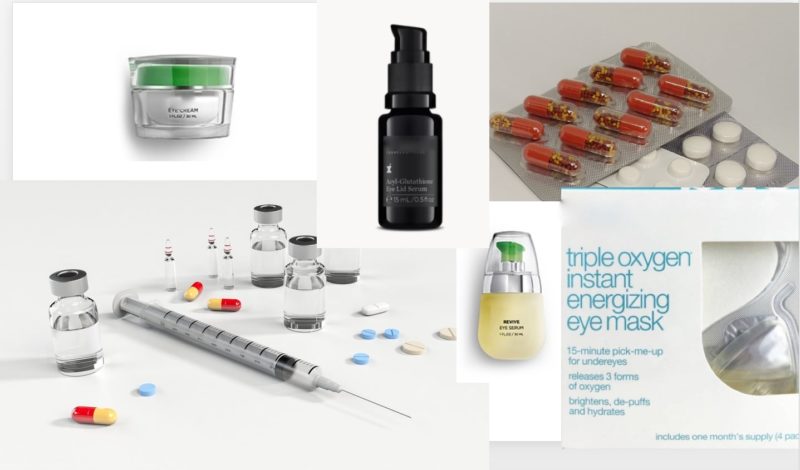[et_pb_section bb_built=”1″ admin_label=”section” _builder_version=”3.0.47″][et_pb_row admin_label=”row” _builder_version=”3.0.47″ background_size=”initial” background_position=”top_left” background_repeat=”repeat”][et_pb_column type=”4_4″][et_pb_text _builder_version=”3.0.106″ background_size=”initial” background_position=”top_left” background_repeat=”repeat” background_layout=”light”]

 This Thursday, as this blog post launches, I’ll be speaking before five hundred people at IGNITE Seattle for five brief minutes of fame. My topic is How I Dumped Denial: 60 is NOT the new 40. I don’t want you to miss my earth-shaking findings (In case you won’t be there,), and I’ve added some data I couldn’t sneak into my five-minutes-and-you’re-out talk. My big premise: There are some things that get better with age, so why wander around like a zombie pretending to look like or trying to be an age that you’re not. Seriously, there’s a MOUNTAIN of money behind age-defying, age-denying, anti-aging products. I’m talking about an industry that produces more revenue than the GDP of three-quarters of the countries in the world. $250 billion dollars–much of which aims to keep those wrinkles off your face.
This Thursday, as this blog post launches, I’ll be speaking before five hundred people at IGNITE Seattle for five brief minutes of fame. My topic is How I Dumped Denial: 60 is NOT the new 40. I don’t want you to miss my earth-shaking findings (In case you won’t be there,), and I’ve added some data I couldn’t sneak into my five-minutes-and-you’re-out talk. My big premise: There are some things that get better with age, so why wander around like a zombie pretending to look like or trying to be an age that you’re not. Seriously, there’s a MOUNTAIN of money behind age-defying, age-denying, anti-aging products. I’m talking about an industry that produces more revenue than the GDP of three-quarters of the countries in the world. $250 billion dollars–much of which aims to keep those wrinkles off your face.
Got wrinkles?
Has anyone considered that those wrinkles might be there for a purpose, like treasure maps marking the path of your soul? You earned those wrinkles, those laugh lines, and those forehead furrows. They reflect your personality and your experience–and messing with them can have consequences. I worked with a woman who does face readings based on an old Chinese system; she has lots of examples of people messing up their lives by “fixing” their features or wiping away their wrinkles. 
If you say, “But I want my wrinkles,” people are likely to look at you like that 84-year-old woman in Seattle who refused to sell out to the developers, who then built their shopping mall around her property. But who (after a certain age) doesn’t want to look a little younger? I could make a fortune in click-bait advertising on the internet if I offered up titles like You Never Have to Look Your Age Again, The Secret of Looking Young Forever, or Why Sag When You Can Soar? The problem? I wouldn’t know what to write. Maybe I’ll build my readership by announcing: Doctor Discovers Secret to Eternal Life. Truthfully though, I’m not a purist and I’d certainly be happier if I could put back into my cheekbones the flesh that has drifted down to my jowls. Oh, well.
Ageism
The message in our culture is loud: young=good/old=bad. It sounds like a bad joke until someone at the deli counter doesn’t see you and serves a younger client first (this has happened to friends). Or, you go to a party and you feel like you’re wearing Harry Potter’s invisibility cloak. In my IGNITE talk, I treat ageism lightly, but the topic stops being funny (after a certain age) if you’ve been on the job market for months without even receiving a callback. I used to believe that ageism was only real if you allowed it to be real, but after hearing too many stories, I think my concept was a naive fantasy. Ageism is peculiar. Why would you be ageist when you, too, are going to be old someday? Plus, folks past fifty represent a huge market, which is often ignored by marketers–except for sales of those anti-aging products and Depends (diapers, don’t ask). Older adults are rapidly becoming the largest market segment in society and will possess the most purchasing power of any demographic, according to a task force at the International Longevity Center in New York. Mid-life-plus women in the United States have great buying power and drive many buying decisions. Yet I remember my experience, some years ago, when I took my mother shopping at Nordstroms. She was 78, I was 54. As we eyed the skimpy midriff tops and low rider pants, it was as if there was a sign on the door: OLDER NOT WANTED HERE. I found nothing to buy for my mother. Didn’t the retailers understand that Mom’s buying power far exceeded that of the 18-year-old nymphets that were being targeted by marketers?
What We Can Do
I don’t expect to change our culture’s obsession with youth any time soon. What I can do, and recommend to my friends, is to take ground by learning what gets better with age. I’ve studied about the brain, drawing heavily from the work of Dr. Gene Cohen and his book, The Mature Mind: The Positive Power of the Aging Brain, and I discovered that there are parts of your brain that improve with age, at least for most of us. For example,
- Your vocabulary keeps increasing, even if you forget the occasional (or in my case, more than occasional) word.
- Your brain is better able to handle complexity and see the big picture, and
- Your amygdala, that pesky epicenter of your emotional reactivity, calms down, making you less subject to irrational outbreaks.
The Biggest Gift
The biggest selling point for getting older, (and the reason we should all be craving more age) is that we finally get to let go of having to prove we’re somebody so that we can be who we really are.
What bigger gift could there be to your personal and spiritual development?
So why would you ever deny your age?
Hopefully, after people hear my talk–they won’t.
[/et_pb_text][/et_pb_column][/et_pb_row][/et_pb_section]











2 Responses
Hi Sally, this was exactly the message I needed to hear today! 🙂
Funny you should mention Nordstrom– I used to say, “I waited 35 years for Nordstrom to come to Las Vegas, and by then I was too old to wear the clothes they sell.”
Keep up the good works!
Love it Carolyn!